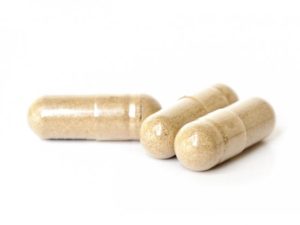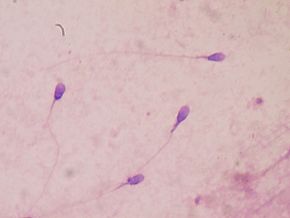 Researchers are starting to raise concerns about routine daily intake of probiotics for "gut health". Much is still unknown, but problems are starting to appear. A healthy gut contains hundreds of species (bacteria, fungi, viruses), and taking megadoses of a few species (a probiotic supplement) can overwhelm the normal gut microbial community. A healthy gut is one with a greater diversity of species, not just some species.
Researchers are starting to raise concerns about routine daily intake of probiotics for "gut health". Much is still unknown, but problems are starting to appear. A healthy gut contains hundreds of species (bacteria, fungi, viruses), and taking megadoses of a few species (a probiotic supplement) can overwhelm the normal gut microbial community. A healthy gut is one with a greater diversity of species, not just some species.
For example, one study found that daily probiotic ingestion can result in overgrowth of some bacterial species in the intestines, resulting in such symptoms as brain fogginess, bloating, and gas. Successful treatment was antibiotics and stopping the use of probiotics. Another recent study found that after using antibiotics, those who took probiotics (thinking it would help microbial recolonization of the gut microbes) actually had slower recovery of the gut microbiome (microbial community). The best recovery was in those who took nothing, no supplements at all, or those who received a fecal microbial transplant (where an entire microbial community is transplanted).
The evidence is showing that for gut microbial health, the best thing to do is eat a variety of real whole foods (and not highly processed foods) that have lots of fiber, such as whole grains, fruits, vegetables, seeds, nuts, and legumes (beans). In other words, feed the beneficial bacteria. A Mediterranean style diet is good.
A recent article in Medscape (the medical site) highlights these same concerns. [See below.] A study that looked at the gut microbiome of people who were about to undergo treatment for melanoma found that those who were taking probiotics actually had worse gut microbial diversity. [Remember, gut microbial diversity is considered an indicator of gut health.] And the cancer treatment (immunotherapy) did not work as well on them.
Bottom line: The evidence is showing that for gut microbial health, the best thing to do is eat a variety of real whole foods (and not highly processed foods) that have lots of fiber, such as whole grains, fruits, vegetables, seeds, nuts, and legumes (beans). In other words, feed the beneficial bacteria. A Mediterranean style diet is good. Don't take routine daily supplements or probiotics for "gut health" - they won't help. Instead, if you want - only take probiotics for a short while for a specific symptom or problem.
Dr. Lorenzo Cohen wrote a piece for the Wall Street Journal laying out those same points. Excerpts from: Those Probiotics May Actually Be Hurting Your ‘Gut Health’ ...continue reading "Daily Use of Probiotics Can Hurt Gut Health"
 The past year has resulted in disappointments for the vitamin and mineral supplement industry as study after study didn't find health benefits from routinely ingesting them. Instead, study after study found health benefits from eating a good diet, specifically one that has as few as possible highly processed foods, but lots of whole foods, and rich in whole grains, fruits, vegetables, nuts, seeds, and legumes (beans). And in this way, also high in fiber. Think along the lines of a Mediterranean diet.
The past year has resulted in disappointments for the vitamin and mineral supplement industry as study after study didn't find health benefits from routinely ingesting them. Instead, study after study found health benefits from eating a good diet, specifically one that has as few as possible highly processed foods, but lots of whole foods, and rich in whole grains, fruits, vegetables, nuts, seeds, and legumes (beans). And in this way, also high in fiber. Think along the lines of a Mediterranean diet.
 Another great reason to lose weight if you are really overweight (let's be honest, the term is "obese") is a lower risk of two types of skin cancer: squamous cell carcinoma and melanoma. Obesity is considered a cancer risk, that is, it increases the risk of cancer, and after bariatric surgery there is a lower risk of cancer.
Another great reason to lose weight if you are really overweight (let's be honest, the term is "obese") is a lower risk of two types of skin cancer: squamous cell carcinoma and melanoma. Obesity is considered a cancer risk, that is, it increases the risk of cancer, and after bariatric surgery there is a lower risk of cancer. Drinking
Drinking  Another great option for losing weight and better health may be to only eat within a 10 hour window, and then not eat for 14 hours (thus a nightly 14 hour fast). Many may find this easier than traditional dieting (counting calories and restricting eating). Just eat breakfast later, supper earlier, and no snacks in the evening. (But water is OK.)
Another great option for losing weight and better health may be to only eat within a 10 hour window, and then not eat for 14 hours (thus a nightly 14 hour fast). Many may find this easier than traditional dieting (counting calories and restricting eating). Just eat breakfast later, supper earlier, and no snacks in the evening. (But water is OK.) Once again a study finds an association between a Western diet (lots of processed meat, red meat, fried food, desserts, low fiber, high in refined grains, sugar sweetened beverages, and high-fat dairy) and a poor health outcome - this time a significantly higher incidence of late-stage age-related macular degeneration (AMD).
Once again a study finds an association between a Western diet (lots of processed meat, red meat, fried food, desserts, low fiber, high in refined grains, sugar sweetened beverages, and high-fat dairy) and a poor health outcome - this time a significantly higher incidence of late-stage age-related macular degeneration (AMD). Americans are eating so much ultra-processed food that it's now more than 50% of their daily calories. And why shouldn't they eat these foods? They're easy to get (fast foods, prepackaged foods, take out foods), they taste good, and they're great for people pressed for time. That's why they're called "convenience foods" and include fast foods, prepackaged foods, many frozen meals, take out foods, soda, packaged snacks, and many cakes, candies, and cookies.
Americans are eating so much ultra-processed food that it's now more than 50% of their daily calories. And why shouldn't they eat these foods? They're easy to get (fast foods, prepackaged foods, take out foods), they taste good, and they're great for people pressed for time. That's why they're called "convenience foods" and include fast foods, prepackaged foods, many frozen meals, take out foods, soda, packaged snacks, and many cakes, candies, and cookies. Researchers are starting to raise concerns about routine daily intake of probiotics for "gut health". Much is still unknown, but problems are starting to appear. A healthy gut contains hundreds of species (bacteria, fungi, viruses), and taking megadoses of a few species (a probiotic supplement) can overwhelm the normal gut microbial community. A healthy gut is one with a greater diversity of species, not just some species.
Researchers are starting to raise concerns about routine daily intake of probiotics for "gut health". Much is still unknown, but problems are starting to appear. A healthy gut contains hundreds of species (bacteria, fungi, viruses), and taking megadoses of a few species (a probiotic supplement) can overwhelm the normal gut microbial community. A healthy gut is one with a greater diversity of species, not just some species. Reading the following study, I thought to myself - OK, once again someone is testing a supplement, but generally studies find that supplements don't do as well as real, actual foods in whatever is being tested. In this case, a supplement containing lycopene, which is found in tomatoes,
Reading the following study, I thought to myself - OK, once again someone is testing a supplement, but generally studies find that supplements don't do as well as real, actual foods in whatever is being tested. In this case, a supplement containing lycopene, which is found in tomatoes,  Once again a study finds health problems from supplements. This time,
Once again a study finds health problems from supplements. This time,